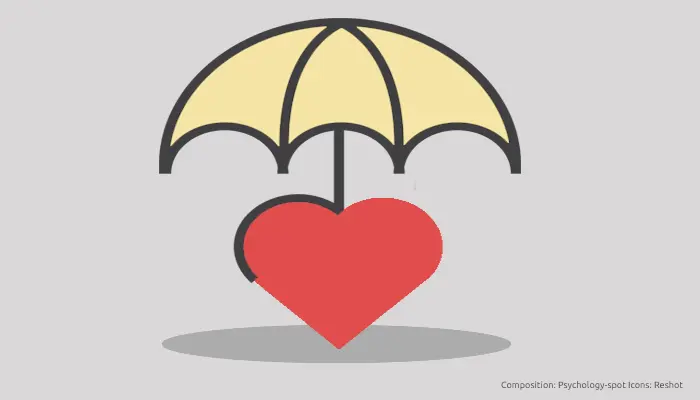
“We accept the love we think we deserve,” wrote Stephen Chbosky in the book “The Perks of Being a Wallflower.” And he was not wrong, although it often pains us to admit it. However, it would be even worse to close our eyes to that truth and remain trapped in relationships that harm us or bonds that cloud our happiness and hinder our potential.
The emotional mark left by our first relationships
Every day we meet dozens of people, but we only choose a few to become part of our circles of trust, either as a couple or as friends. When choosing, an infinite number of factors come into play, but many of them operate at an unconscious level.
In fact, some of the important components that tip the balance in favor of certain people are actually forged in childhood, especially based on the relationship we had with our parents, although later other significant life experiences are added that also have been influencing the formation of our identity, from the first romantic love to the bonds of friendship.
The love that we have seen and absorbed in our childhood leaves a very deep mark on us that determines our relationships as adults, shaping our attachment style.
In the early 1990s, psychologists at the University of Minnesota had already proven that there is a relationship between the type of attachment with which we were raised and the quality of the relationships we establish in adulthood. They found, for example, that those who had developed an anxious-ambivalent attachment to their parents had a constant fear that their partners would abandon them or not love them.
Therefore, as a general rule, the love we seek is the love we receive.
Love, a self-fulfilling prophecy
The love we receive becomes our reference, the source from which our expectations emanate. When we feel attracted to someone, it is usually because that person embodies the ideal – good or bad – that we have built in our subconscious.
For example, a child who has grown up being a victim of lack of affection from his parents will probably be thinking that he is not worthy of being loved, but at the same time experiences a strong need for connection. This makes him an emotionally vulnerable adult, so it is possible that he will choose the first person that crosses his path and cling to them, even if they maintain a harmful relationship.
Without realizing it, we repeat the emotional pattern we have learned. Thus love becomes a self-fulfilling prophecy. That is the reason why people stumble over the same stone several times, falling again and again into the same toxic or emotionally dependent relationships.
In fact, when it comes to establishing relationships, the rational part of the brain is usually relegated to the background. That’s why we say that love is blind. We do not think clearly, but the emotional zones are activated, those where our first relational patterns are stored. For this reason, it is said that we all have the love that we think we deserve.
If deep down, you believe that you deserve to be punished, you are likely to fall into the arms of someone who does. Likewise, if you believe that you don’t deserve love, your unconscious will find a thousand ways to sabotage your relationships. On the other hand, if you have grown up in a healthy environment and have solid self-esteem, you will look for someone who loves you in a mature way, values, respects and appreciates you.
First, love yourself
It is quite difficult to find mature love if we are not able to love ourselves that way. It is difficult to demand healthy love if we have never received it, simply because we have no idea what it should be like. In fact, you can’t force anyone to love you more or better. If they are not loving you the way you want, perhaps the problem is that you are not appreciating yourself enough.
For this reason, before looking for love outside, you must look inside. You have to take responsibility for the direction your love life has taken. If you want to find a love that complements you and allows you to grow as a person, you must first love yourself.
You will have to accept yourself and treat yourself well. You will have to love yourself enough to believe that you deserve a person who loves you back. You will have to appreciate yourself, so as not to settle for less. You will have to be convinced that you are worthy of being loved, not despite your flaws, but with them.
Remember that every healthy and happy relationship is built on a mature love that nourishes and validates. Don’t settle for less, but start by loving yourself unconditionally. Only then can you find that love in another person. Ultimately, the affection you hope to receive does not begin outside, but within you because it is a reflection of your own love.
References:
Simpson, J. A. et. Al. (1992) Support seeking and support giving within couples in an anxiety-provoking situation: The role of attachment styles. Journal of Personality and Social Psychology; 62(3): 434–446.



